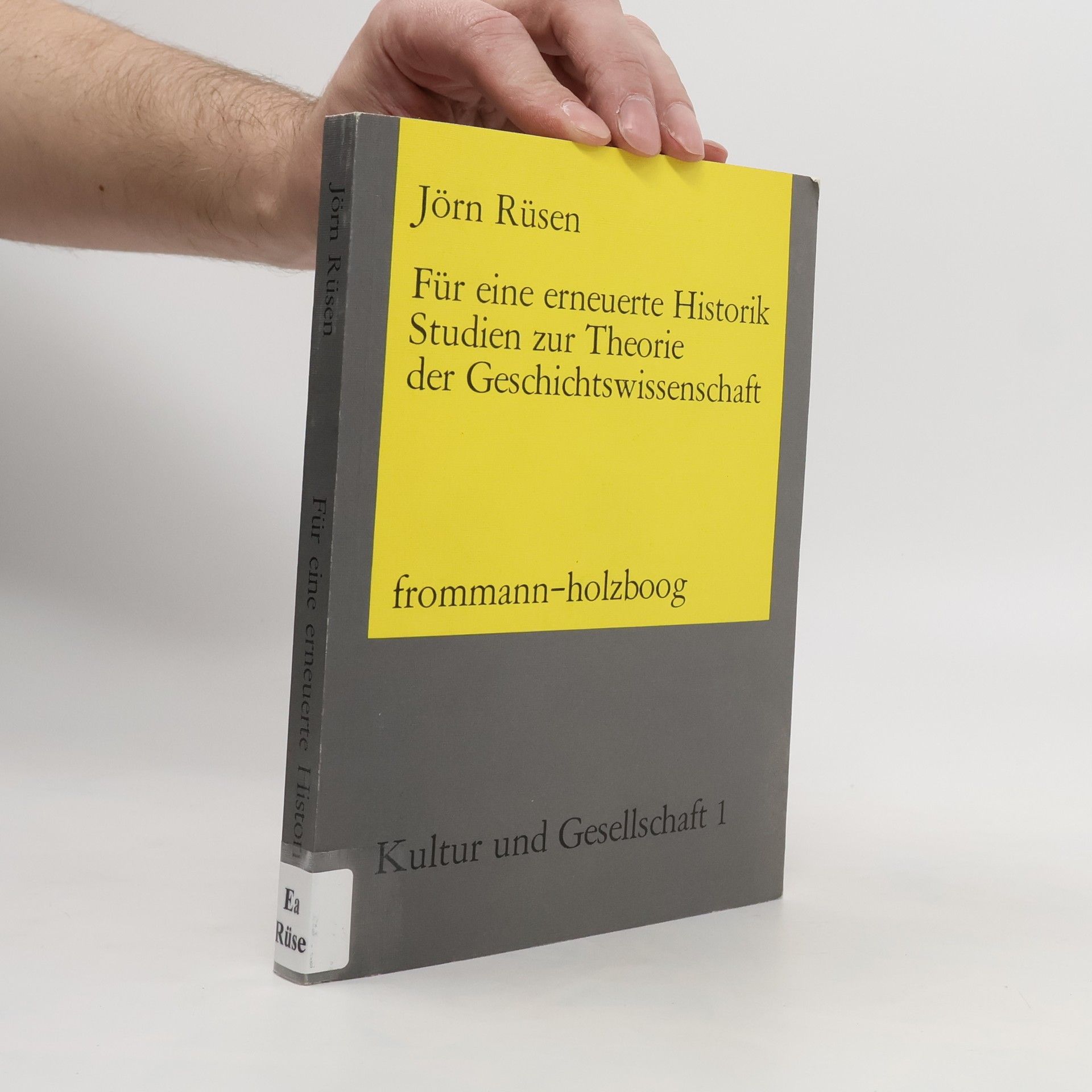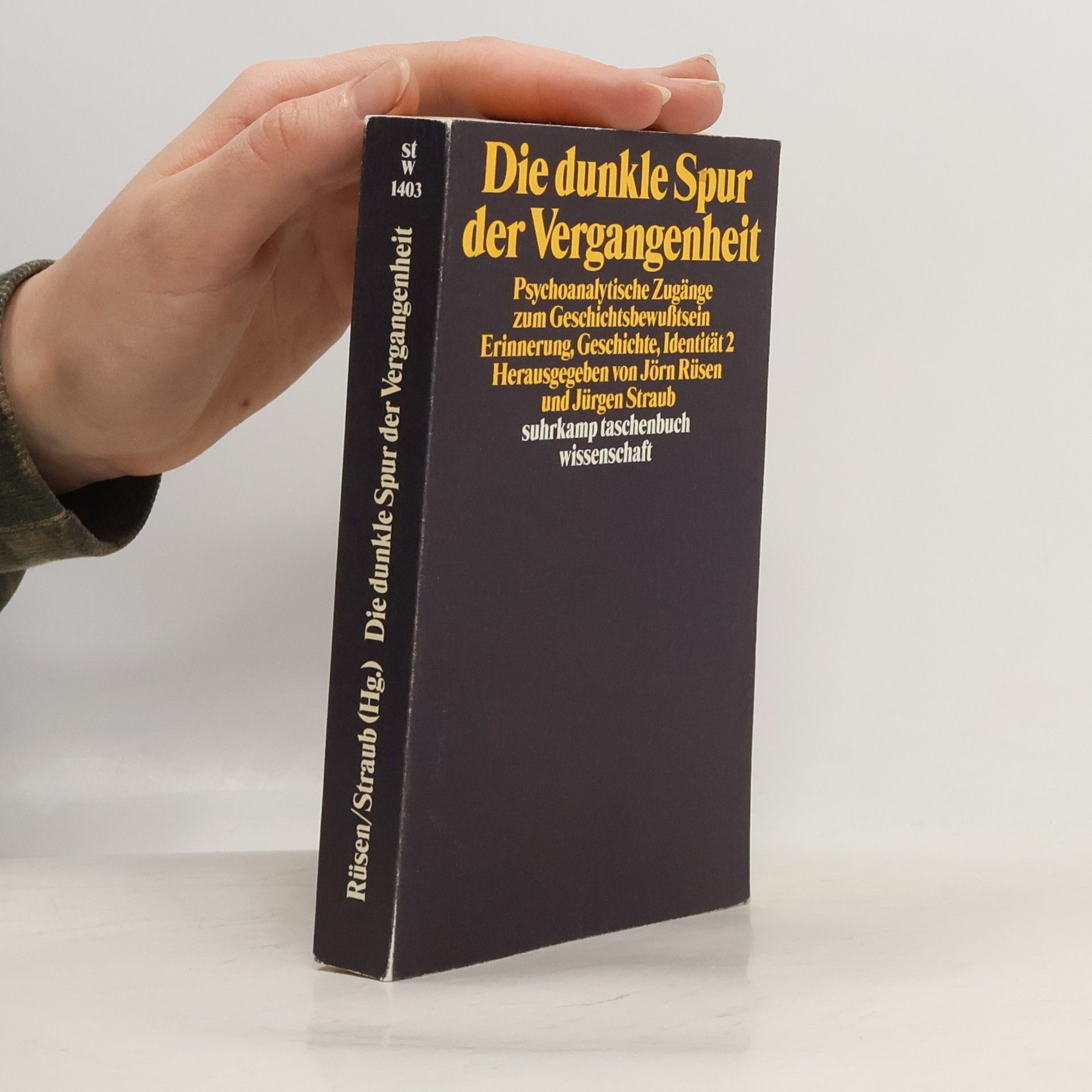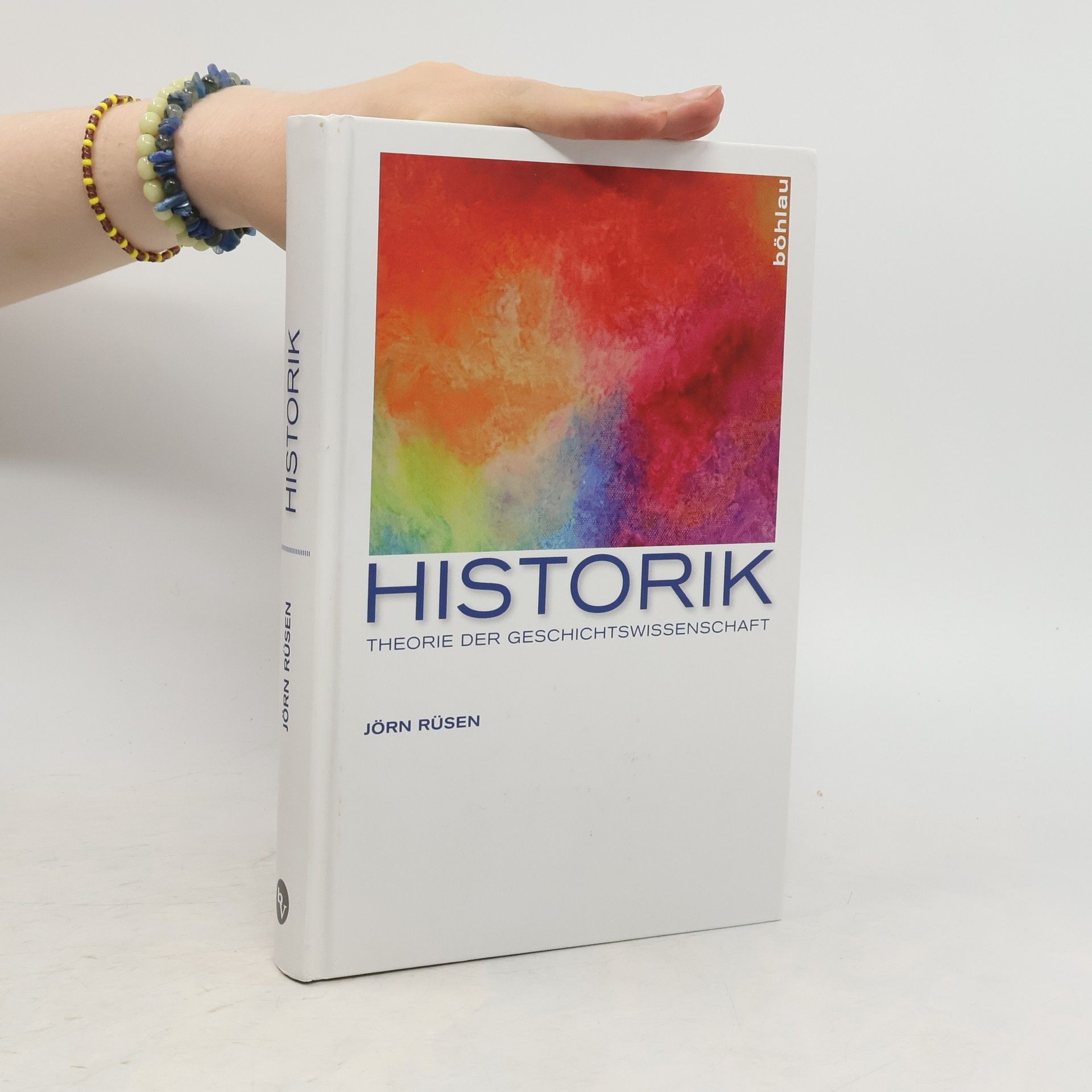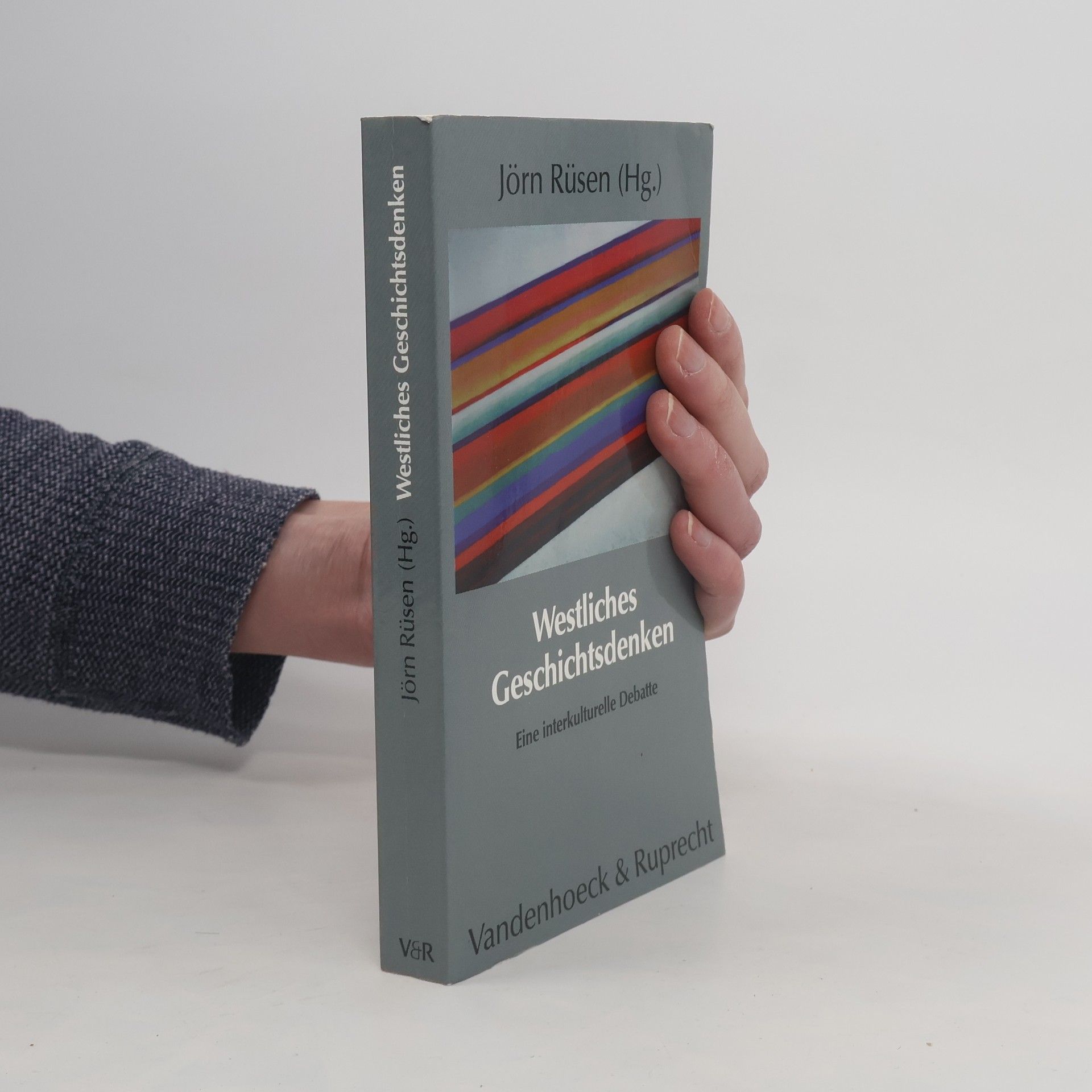Focusing on the systematic and historical aspects of humanism, the book delves into its manifestations and functions within cultural studies. It examines the role of humanism in contemporary contexts while bridging history and philosophy, making it an ideal resource for readers interested in exploring this intellectual movement's evolution and significance.
Jörn Rüsen Book order (chronological)
Jörn Rüsen is a German historian and cultural theorist whose work centers on the interpretation of the past and the formation of historical consciousness. Rüsen explores how people and societies understand and narrate their pasts, examining how these narratives shape the present. His approach is marked by an interdisciplinary conception of history, connecting historical scholarship with cultural studies and philosophy. Through this lens, he offers profound insights into the dynamics of historical thinking and its role in constructing identity.






Historische Sinnbildung
Grundlagen, Formen, Entwicklungen
Der Begriff des Sinns steht überall im Hintergrund des geschichtswissenschaftlichen Forschens, der Geschichtstheorie und -didaktik. In diesem Band wird dieser Begriff umfassend und in allen seinen Dimensionen entfaltet und dargestellt und zu einer Theorie der Geschichtskultur erweitert.
Der Band präsentiert eine umfassende Analyse der grundlegenden Fragestellungen der Historik sowie des historischen Denkens. Er beleuchtet verschiedene Perspektiven und Ansätze, die das Verständnis von Geschichte prägen, und bietet somit wertvolle Einsichten für Studierende und Interessierte der Geschichtswissenschaft. Die Vielfalt der Themen ermöglicht es, die Komplexität und die Herausforderungen der historischen Forschung zu erkennen und zu diskutieren.
Geschichtskultur, Bildung und Identität
Über Grundlagen der Geschichtsdidaktik
- 244 pages
- 9 hours of reading
Der Umgang mit verstörenden historischen Erfahrungen und die Komplexität der historischen Identitätsbildung in modernen Gesellschaften stehen im Mittelpunkt der Analyse. Das Buch beleuchtet zentrale Themen der Geschichtskultur und entwickelt eine zeitgenössische Theorie der historischen Bildung, die die Herausforderungen und Chancen der Auseinandersetzung mit der Vergangenheit in der heutigen Zeit thematisiert.
Der Historiker Jörn Rüsen steht in der Tradition Johann Gustav Droysens. Er fügt phänomenologische, wissenschaftstheoretische, erkenntnistheoretische, methodologische, geschichtsphilosophische, erzähl- und kulturtheoretische Überlegungen in einen einheitlichen Argumentationszusammenhang, der den Grundlagen, dem Status und der Funktion des historischen Denkens gewidmet ist. Die anthropologisch-universellen Grundlagen dieses Denkens werden ebenso dargelegt, wie der innere Aufbau der Geschichtswissenschaft als kognitives Gebilde und dessen kulturelle Funktion in der menschlichen Lebenspraxis erörtert werden. Zentraler Gesichtspunkt der Theorie ist der »Sinn« dessen, was als Geschichte erkannt wird, und damit verbunden der Sinn des historischen Denkens im Allgemeinen und in seiner Form einer modernen Kulturwissenschaft im Besonderen. Rüsens anthropologisch fundierte Darstellung der theoretischen und methodischen Grundlagen der Geschichtswissenschaft nimmt eine Mittelstellung zwischen modernem Wissenschaftlichkeitsanspruch und postmodernem Konstruktivismus ein.
“Die Sklaverei, die Kolonialherrschaft und die damit einhergehenden Demütigungen der Afrikaner über Jahrhunderte hinweg lassen es schwer fallen, über den ‹Humanismus› zu sprechen”, schreibt Elisio Macamo auf Seite 70. Einen Augenblick lang wird in Frage gestellt, wovon die Sammlung von Aufsätzen zum Thema Humanismus in allen Weltkulturen (1. Teil) ausgeht: dass Humanismus überall in der Welt existiert - Humanismus verstanden als Überzeugung, dass der Mensch innerhalb der Natur einen besonderen Platz einnimmt. Mit dieser Minimaldefinition bleibt die Aufsatzsammlung offen für unterschiedliche Perspektiven auf den Humanismus in den verschiedenen Kulturen. Damit leistet sie einen plausiblen Beitrag zu einer interkulturellen Auseinandersetzung innerhalb der Globalisierung. Aufsätze im 2. Teil beleuchten Einzelthemen: Humanismus und Politik, Umwelt, Bildung sowie - gerechte Löhne. Der 3. Teil steigt mit “Interkulturalität” und “diversity” auf ein abstrakteres Niveau. Die Texte sind anspruchsvoll und ihre Lektüre lohnt sich für an ethischen und interkulturellen Fragen interessierte Menschen. Hans Utz.
Beiträge zur Geschichtskultur: Trauer und Geschichte
- 378 pages
- 14 hours of reading
German
Beck'sche Reihe - 1356: Richard Wagner im Dritten Reich
Ein Schloß Elmau-Symposium
- 373 pages
- 14 hours of reading
Auf dem Schloss-Elmau-Symposion 'Wagner im Dritten Reich' trafen im Juli 1999 zum ersten Mal in Deutschland international angesehene Experten - Historiker, Politologen, Philologen, Musik- und Theaterwissenschaftler - zusammen, um über eine bisher von der Forschung vernachlässigte, für das Verständnis des NS-Systems und der Wagnerischen Kunst aber überaus wichtige Frage zu diskutieren: Welche Bedeutung hatte Wagner für das Dritte Reich? Dabei geht es im weiteren Sinne um die ideengeschichtlichen Zusammenhänge zwischen Wagner, seinem Antisemitismus und dem des Bayreuther Kreises einerseits und dem Antisemitismus des NS-Systems andererseits, um die Ästhetisierung des Politischen, die Rolle der Kunstreligion in der jüngeren deutschen Geschichte, die politische Religion des Nationalsozialismus und deren Quellen. Die Vorträge dieses Symposiums sind in diesem Band vereinigt. Mit Beiträgen von: Saul Friedländer, Jörn Rüsen, Dieter Müller-Elmau, Joachim Fest, Udo Bermbach, Dieter Borchmeyer, David J. Levin, Reinhold Brinkmann, Jens Malte Fischer, Nike Wagner, David Clay Large, Horst Weber, Dorothea Redepenning, Gudrun Schwarz, Hans Rudolf Vaget, Paul Lawrence Rose, Hartmut Zelinsky und Marc A. Weiner.
Die Identität von Menschen und Gesellschaften wird maßgeblich durch das Geschichtsbewusstsein geprägt, das Unterschiede zwischen Kulturen verdeutlicht. Historiker aus Afrika, Amerika, Asien und Europa diskutieren in diesem Band die Gemeinsamkeiten und Unterschiede im historischen Denken ihrer Kulturen. Der Fokus liegt nicht auf der Identifizierung verschiedener Ausprägungen des historischen Denkens, sondern auf einer echten Kommunikation zwischen Kulturen. Ausgangspunkt sind zehn Thesen von Peter Burke über das dominierende westliche Geschichtsdenken. In siebzehn Kommentaren werden diese Thesen aus unterschiedlichen Perspektiven beleuchtet, wobei eine beeindruckende Vielfalt an Traditionen und Strategien des historischen Denkens präsentiert wird. Es wird deutlich, dass westliches Geschichtsdenken nicht auf einem einheitlichen Prinzip basiert, sondern aus einer spezifischen Kombination von Elementen besteht, die auch in anderen Kulturen vorkommen. Die Beiträge zeigen, dass nicht-europäische Kulturen sich von europäischen historischen Deutungen befreien und westliche Dominanzansprüche ablehnen, während sie eigene Formen des historischen Denkens betonen. Der Band stellt somit einen entscheidenden Schritt zu einer echten interkulturellen Debatte dar.



